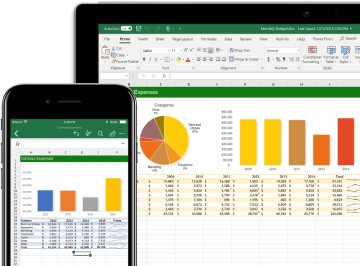Build Confidence with Computers, Phones, and Online Tools
Digital and information and communication technology (ICT) skills are the basic skills to use a computer, smartphone, internet network, or another digital tool. They assist a person in performing daily activities, from typing a letter to shopping online to joining a video call. Almost everything nowadays has a touch of digital skill in it-whether it's a kind of job, learning, or just a casual get-together with friends. Without it, keeping up will be a challenge, even to filling out a job application or setting up doctor appointments. Hence, learning is very important everyday skills that make life simpler yet very much interconnected and efficient.
Getting Started with Computers

If you've never used a computer before, the first step is learning what all the parts do. You'll usually see a monitor (the screen), a keyboard, a mouse, and sometimes a printer. Computers run on something called an "operating system," such as Windows or macOS, which helps you find and open programs. Once you know how to turn on the computer and use the mouse to click or the keyboard to type, you can start learning how to open folders, use software, and save your work. Understanding how to shut down properly, adjust settings, and troubleshoot small problems can help you feel more in control.
Staying Safe Online
Online safety is something everyone needs to understand, no matter their age or experience. The internet is full of helpful sites, but there are also risks like scams, viruses, and people who want to steal your personal information. You should never share private details like your bank account number or password unless you're on a secure and trusted site. It's also smart to use strong passwords (a mix of letters, numbers, and symbols) and to change them now and then. Be cautious of emails or pop-ups that ask for urgent action—they're often fake.
Using Word for Writing
Microsoft Word is a popular tool for writing all kinds of documents—letters, CVs, school papers, or notes. When you open a new document, you can type straight into it using your keyboard. Word allows you to change the font, size, and colour of your text. You can also use features like spell check, bullet points, and tables to make your writing more organised. If you want to keep a copy, you can save it to your computer or a USB stick. If you're working with someone else, you can print the document or email it as an attachment. Google Docs is a free alternative you can use in your web browser, with many of the same features.
Using Excel for Simple Tasks

Microsoft Excel is a spreadsheet program that helps you organise and work with numbers and lists. It looks like a big grid made up of rows and columns, where each box is called a cell. You can enter information like names, dates, or amounts of money. Excel can add up totals automatically and create graphs or charts to help you understand the numbers better. This is useful for budgeting, tracking spending, making schedules, or managing stock if you run a business. Once you get used to it, you can learn basic formulas that make your work faster and more accurate, like adding a whole column or calculating averages.
Using Mobile Devices for Productivity
The most valuable things one can own are smartphones and tablets, far beyond making phone calls or sending telegrams. If you want to, you can also set a calendar reminder, watch weather stations, track your steps or maybe even manage your bank accounts. Or maybe you want to edit some documents? There are many free apps that are helpful in easing your life. Additionally, there are apps like Google Calendar for scheduling, Notes for swift listing, or apps to shop or to learn. Making sure you download apps from a safe platform, that you manage your data, and that you keep the device updated for smooth operation should be very important to you after that.
Quick Links
Improve your time management skills by doing these: pic.twitter.com/Wsr21cEcRY
— Israel Montano (@IsraelMont31) May 2, 2025